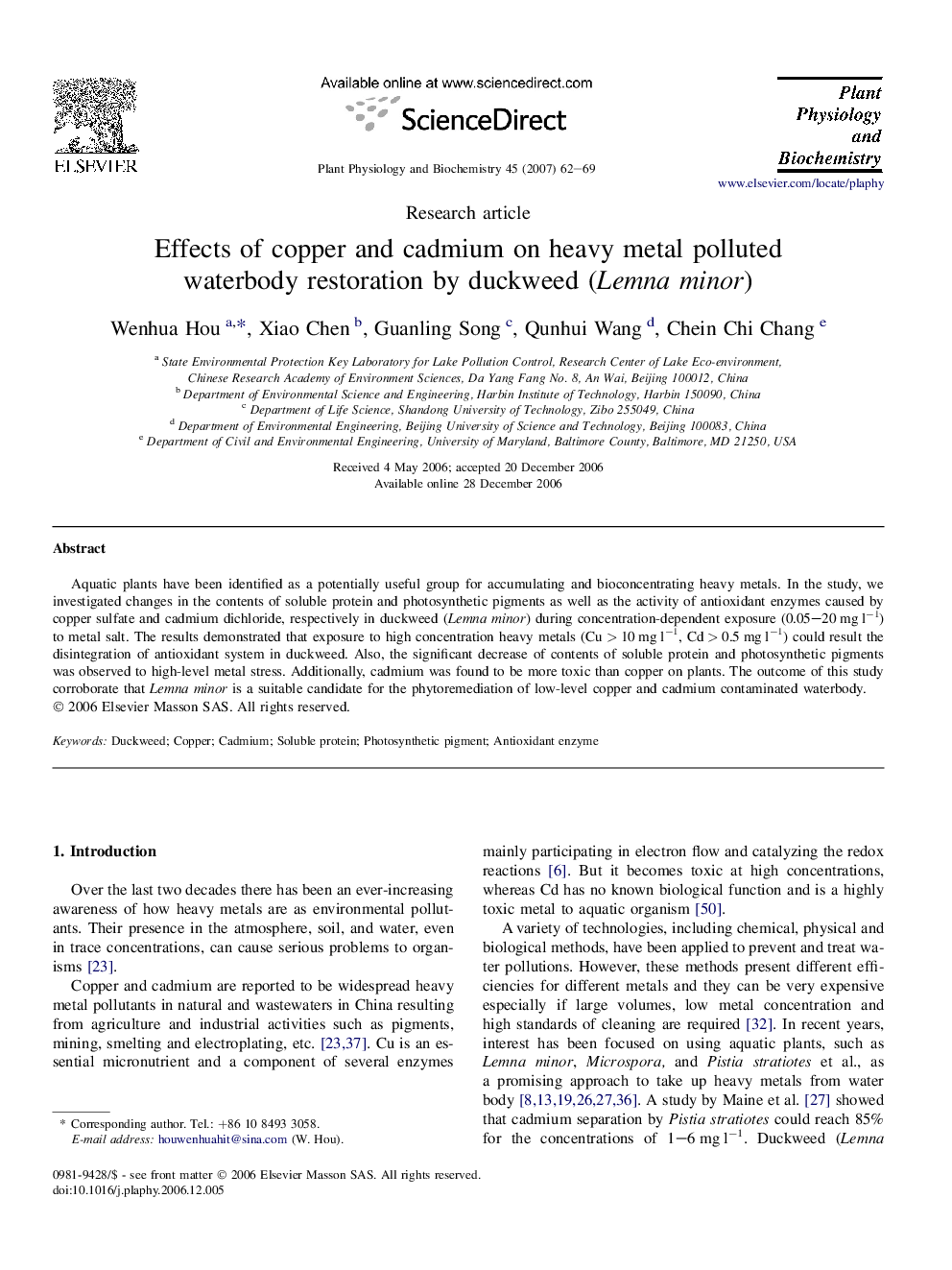| Article ID | Journal | Published Year | Pages | File Type |
|---|---|---|---|---|
| 2016858 | Plant Physiology and Biochemistry | 2007 | 8 Pages |
Aquatic plants have been identified as a potentially useful group for accumulating and bioconcentrating heavy metals. In the study, we investigated changes in the contents of soluble protein and photosynthetic pigments as well as the activity of antioxidant enzymes caused by copper sulfate and cadmium dichloride, respectively in duckweed (Lemna minor) during concentration-dependent exposure (0.05–20 mg l−1) to metal salt. The results demonstrated that exposure to high concentration heavy metals (Cu > 10 mg l−1, Cd > 0.5 mg l−1) could result the disintegration of antioxidant system in duckweed. Also, the significant decrease of contents of soluble protein and photosynthetic pigments was observed to high-level metal stress. Additionally, cadmium was found to be more toxic than copper on plants. The outcome of this study corroborate that Lemna minor is a suitable candidate for the phytoremediation of low-level copper and cadmium contaminated waterbody.
